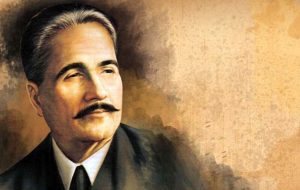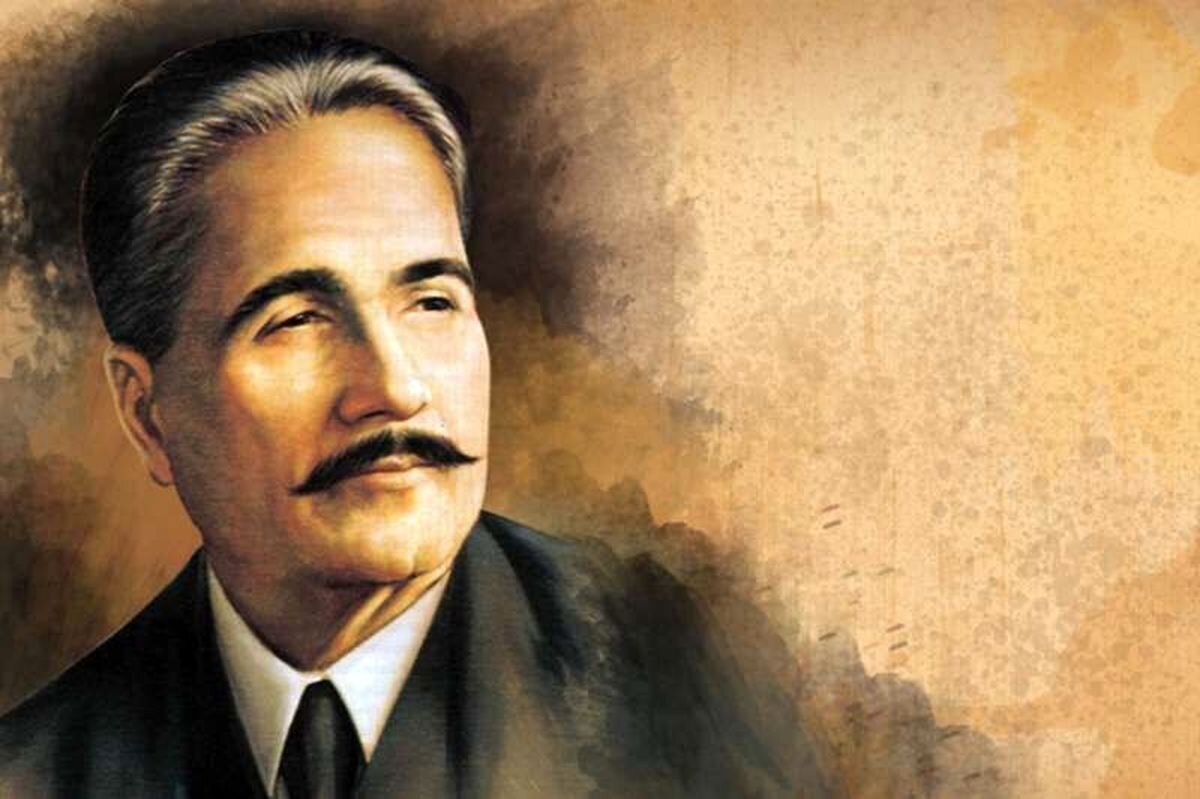Allama Muhammad Iqbal Lahori and his message to the mankind
How can a poet be relevant to the present world, who was born in the 19th century and departed in the first half of the twentieth century This is a natural question. Before coming to a direct answer to this question we have to see what a poet says. In other words, we have to


How can a poet be relevant to the present world, who was born in the 19th century and departed in the first half of the twentieth century This is a natural question. Before coming to a direct answer to this question we have to see what a poet says. In other words, we have to know what is poetry all about.
The subject matter of poetry is the same as that of all global literature. What is the subject matter of literature? The subject matter of literature, philosophy, and all the spiritual books is one, i.e.: man and his life. If the subject matter of man and life is relevant to the present world, and this can not be denied, then Iqbal’s poetry and his philosophical thoughts are also relevant to the present world. This is one dimension of the relationship of Iqbal’s thoughts with us.
Muhammad Iqbal was born on 9 November 1877 in Sialkot, (a city in Pakistan). His father Sheikh Noor Muhammad was a self-contented person. Iqbal received his initial education in Arabic and Persian from Syed Meer Hassn, who was a devoted teacher and friend of his father. He passed his Matriculation and Intermediate from the Scotch Mission School and College Sialkot. For graduation, he was admitted to the famous Government College, Lahore (now university) in 1895. He did his Masters in Philosophy from the same college in 1899. He then entered his practical life in 1899 serving as Macleod Arabic Reader at the Oriental College of the Punjab University. He also taught Philosophy and English at the Government College, Lahore. He, however, still wished to learn more and therefore went to London for further studies in 1905. He stayed in London and Germany till 1908 and received his PhD degree in Philosophy by writing his thesis on ‘The Development of Metaphysics in Persia’. He did his Bar at Law from the Lincoln’s Inn. After returning from London he taught at the Government College, Lahore as Professor of Philosophy. He also practiced law at the Lahore High Court till 1934.
Side by side Iqbal also served his nation as a practical politician. He was elected as a Member of the Punjab Legislative Council in 1926 and President of the All India Muslim League in 1930. As President of All India Muslim League, he delivered his famous Allahabad address in which he presented the idea of a separate Muslim state in the subcontinent. Resultantly Islamic Republic of Pakistan came into being on 14 August 1947.
In his life, Iqbal proved himself a dynamic person by traveling widely. His travels to Europe for studies have already been mentioned. In 1931 and 1932 he visited London to represent the Indian Muslims in the Round Table Conferences convened by the British Government. In 1933 he visited Afghanistan upon an invitation from King Nadir Shah. He also traveled to Bhopal for his medical treatment. Iqbal breathed his last on 21 April 1938.
Iqbal provides a new philosophical premise for the concept of selfhood. In his book Asrar-eKhudi, Iqbal has presented an order for the training of selfhood comprising three stages.
The first stage is اطاعت (obedience) while leading his life, man should be obedient to his Creator so that his weakness turns into power
دراطاعت کوش ای غفلت شعار
می شودازجبرپیدااختیار
(O ignorant man! be obedient [to God], so that as a reward for this obligation, you are endowed with the wealth of authority)
The second stage is that of ضبط نفس (self-control) in this stage man conquers worldly things by acquiring control of himself as otherwise he would have to be subservient to the world.
When a man successfully completes these two stages, he is granted the elevated position of being God’s caliph. About this caliph of God, Iqbal says:
نوع انسان مزرع وتوحاصلی
کاروان زندگی رامنزلی
(The humanity is a crop, the fruit of which is the person who trains himself to the extent of attaining the status of God’s caliph. In fact, this very person is the end product of life’s caravan.)
After the training in selfhood, Iqbal wants man to devote himself to the collective interest of the nation. He names this stage as the بیخودی The basis of the collectiveness of the nation is the concept of the oneness of God and the Prophethood. The Muslim nation was founded on this concept. It develops on a charter and its center is Khana–e–Kaba. The objective of the Muslim nation, according to Iqbal, is the protection of the Haram.
ایک ہوں مسلم حرم کی پاسبانی کے لیے
نیل کے ساحل سے لے کر تابخاک کاشغر
(It is necessary that the Muslim world should get united and that the Muslims scattered all over the world, from the banks of the river Nile to the land of Kashghar, become one to guard the Haram.)
پھرسیاست چھوڑ کر داخل حصاردیں میں ہو
ملک ودولت ہے فقط حفظ حرم کاایک ثمر
To Iqbal, the protection of the Haram is the most important and the most basic purpose as compared to other undertakings of life. If a person gets the greatest success at the cost of this purpose, it is in vain. (In other words, the protection of the Haram is a metaphor for a strong association with Islamic teachings. If a person gets some worldly success at the cost of this association, it would in fact be a loss, Iqbal thinks.
Iqbal wants to make man a strong and productive member of society through his training. He wants the man to have the qualities of a Qalandar, which would make him a true Muslim with all the noble qualities of a human being. For him, the greatest achievement for a person is to become a ‘complete man’. Only a ‘complete man’ can steer the marooned convoy of humanity to its destination. In one of his letters, Iqbal wrote about this concept in the following words:
“According to me, every person who has completed all the stages of training in selfhood is the ‘complete man’.”
Iqbal believes that humanity has to depend upon the creative powers of man for progress. The creative powers of a person or a society have a pivotal importance in human life. In his view, man is different from the other creatures because of his creative gift. His creativity gives him respect and reliability in the universe. In order to restore the confidence of humanity with regard to human values, it is necessary to brighten the darkness of materialism with sincerity and respect. On 1 January 1935, Iqbal, in his radio message of New Year, said:
“The secret to human survival is in the respect for humanity. Until the intellectual forces focus their attention on the lesson of respecting humanity, this world will continue to be a place of beasts.”
By Zahid Munir Amir, Professor at Faculty of Literature & Humanities, University of Tehran
